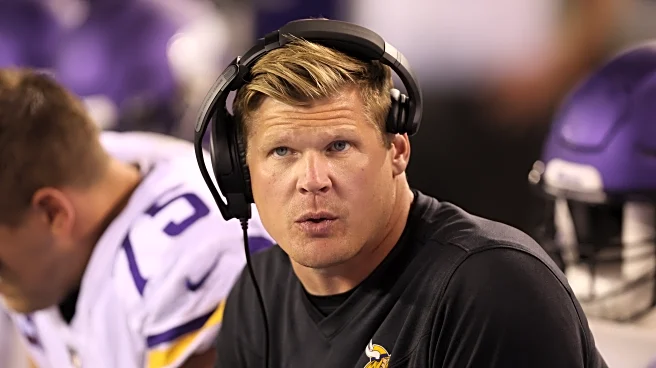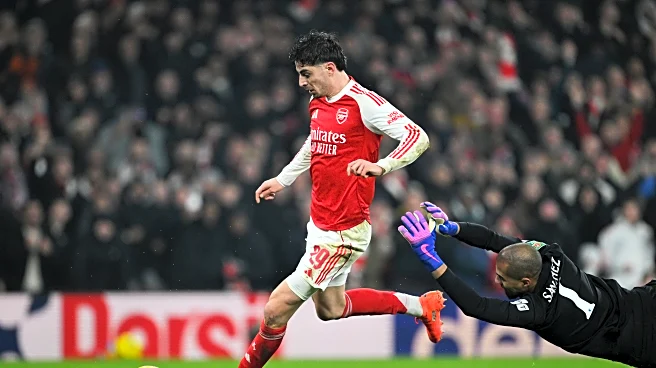What's Happening?
Alex and Maia Shibutani, renowned U.S. ice dancers, made their competitive return at the NHK Trophy after a seven-year hiatus, finishing in sixth place. The siblings, who last competed at the 2018 Winter Olympics where they won bronze medals, returned
to the ice with the aim of showcasing their skills rather than focusing solely on Olympic qualification. Despite their disappointing scores, the Shibutanis emphasized that their comeback was driven by personal motivations rather than competitive results. Their return follows a period of personal challenges, including Maia's recovery from a malignant tumor surgery in 2019.
Why It's Important?
The Shibutani siblings' return to competitive ice dancing is significant for the U.S. figure skating community, as they are among the most decorated American ice dancers. Their comeback adds depth to the U.S. ice dancing field and could inspire other athletes facing personal challenges. The Shibutanis' decision to prioritize personal growth over competitive success highlights a shift in athlete perspectives, emphasizing mental health and personal fulfillment. Their journey may influence public discourse on the pressures faced by athletes and the importance of balancing personal well-being with professional ambitions.
What's Next?
The Shibutanis are scheduled to compete next at the Grand Prix Finlandia Trophy from November 21-23. Their performance there will be closely watched as they continue to navigate their return to competitive skating. The siblings' future in the sport may involve balancing competitive aspirations with personal goals, potentially influencing their participation in future events, including the Milan-Cortina Winter Olympics. Their ongoing journey will likely continue to resonate with fans and fellow athletes, contributing to broader discussions on athlete welfare and career longevity.
Beyond the Headlines
The Shibutanis' return also sheds light on the evolving landscape of figure skating, where athletes increasingly prioritize personal narratives and health over traditional competitive metrics. Their story underscores the importance of resilience and adaptability in sports, offering a narrative of hope and perseverance. As public figures, the Shibutanis have the potential to advocate for greater awareness and support for athletes dealing with health issues, both physical and mental, thereby influencing future policies and support systems within the sports community.
















